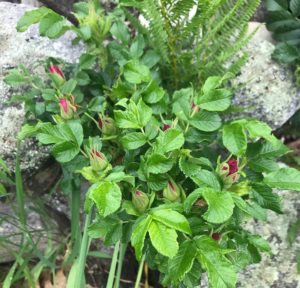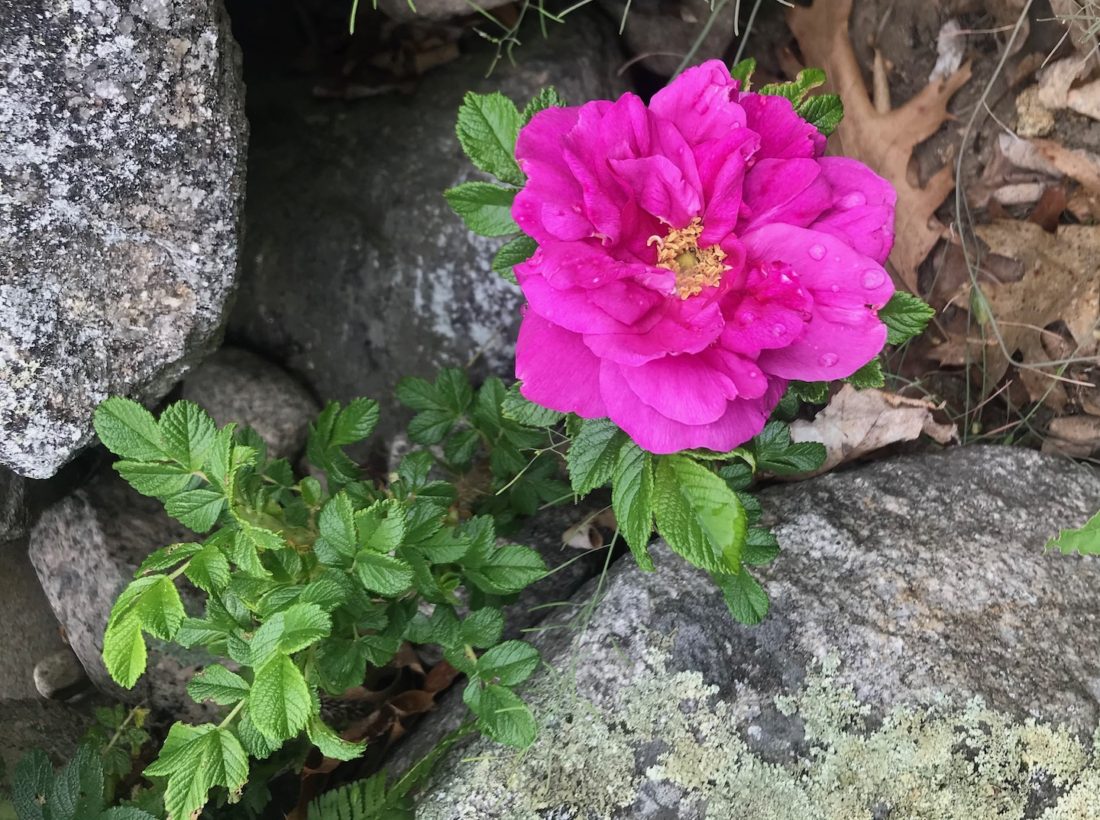The Roses of Anger
What stories will we tell about this time?
The morning after the first demonstrations, on Monday, June 1, my husband and I drove through downtown Boston. The night before, anger had taken down large pane glass windows on fashionable Newbury Street, burned cars in Buffalo, looted stores in Philadelphia.

The streets were quiet. People went about their business while window replacement staffers went about theirs. The horror we’d seen on the news the night before had been subdued to the scars of its history.
Like all of us, I’d been thinking hard about the events of the previous weeks.
The word that kept running through my mind was: “perversion.”
Perversion, Webster’s tells us, is:
‘The alteration of something from its original course, meaning, or state to a distortion or corruption of what was first intended.’ From the Latin, pervertere, to “turn about.”
Synonyms: distortion, travesty.
After Adam and Eve’s “disobedience” in the garden, the first act recorded in the Bible is the murder of an innocent man at the hands of his brother.
Our original brokenness is our violence and cruelty against the Other. Travesties of justice and power (and crass political and economic opportunism), have long institutionalized this brokenness in forms from mild to moderate to mad.
The murders of George Floyd and Ahmaud Arbery were explosions inside the troubled consciences of all of us who wanted to believe the best, despite the evidence — unequal education, housing, jobs, opportunities.
Before Ahmaud and George, timid deference, or distance or baffled indecisiveness had been enough. But their murders elicited a new shared outrage, and the best kind of fellowship – strangers shaken out of untenable temporizing were jolted into new urgency — and this, for now, looks and sounds and feels like the harsh thorns of anger.
Anger gets such a negative rap, we are hard pressed to make space for it when it needs to speak.
It would behoove us to remember that anger is the shroud of shame, the face-saving shield of grief. It is the protective thorn of beauty broken, violated, betrayed. Ask any child forsaken by his friends. Ask any woman betrayed. Ask any friend who has endured the pain of manipulation or deceit.
Anger is also, often, the means by which we wake up to truths long denied. Anger permits us the necessary break from mere accommodation into the raw condition of independence. To move through anger is a very hard thing to do, but it is also necessary — to move from reaction to a space of calm in which we can take the full measure of what has happened to us, and what we choose to do about it.
Only when we have broken through whatever has imprisoned us , or made us “less than,” do we become capable of blooming into wholeness, dignity and integrity. When viewed in this light, panes of glass are a small price to pay.

“Anger is the deepest form of compassion,” writes the poet David Whyte, “for another, for the world, for the self, for a life, for the body, for a family and for all our ideals, all vulnerable and all, possibly about to be hurt…anger is the purest form of care, the internal living flame of anger always illuminates what we belong to, what we wish to protect and what we are willing to hazard ourselves for.”
The healing truth of this insight became clear long after I’d returned home that night, to follow the second wave of demonstrations from there. The angry people in my city were peaceful, mostly. They burned bright, not hot.
And this is the beginning of a different story.
One of the Africa American participants in the second night of demonstrations later told a reporter, “We came out because it’s finally clear that all people care — like white people care,” said Margaret Kiwanuka, of Dorchester. “For me as a Black person to see this many people come out, I feel like they are listening, and that’s hope.”
When we care for one another, when anger turns to compassion, there is no longer any need to hide. The roses can begin, very slowly, to bloom.
By staying clear about the true travesties and where they are being committed, we will be able to see the beauty in our midst, in need of nurture and cultivating.
Now is the time for us to work the soil that enables this to happen. People I know are picking up the phone and offering to support candidates in the November election who are pledging to end the many travesties of power and justice that have brought us to this juncture.
People are sending checks. Ninety-year-olds are volunteering. Writers are raising their voices.
There is so much work to be done, so much to restore and to weed out, to learn to protect and nurture again. Each of us can play our part, wherever we live, whatever our work, to create a world in which the roses of anger can finally bloom into the full and radiant beauty for which they were born.





No Comments